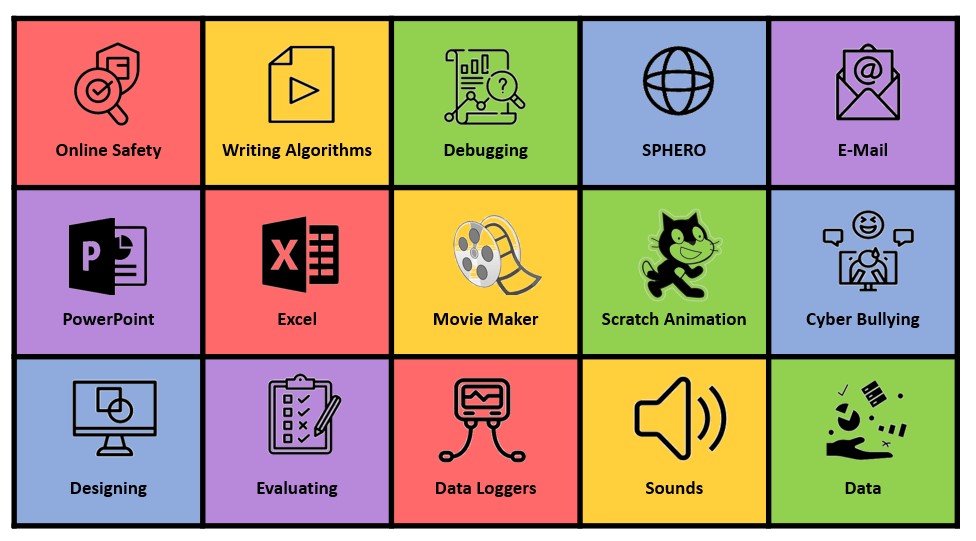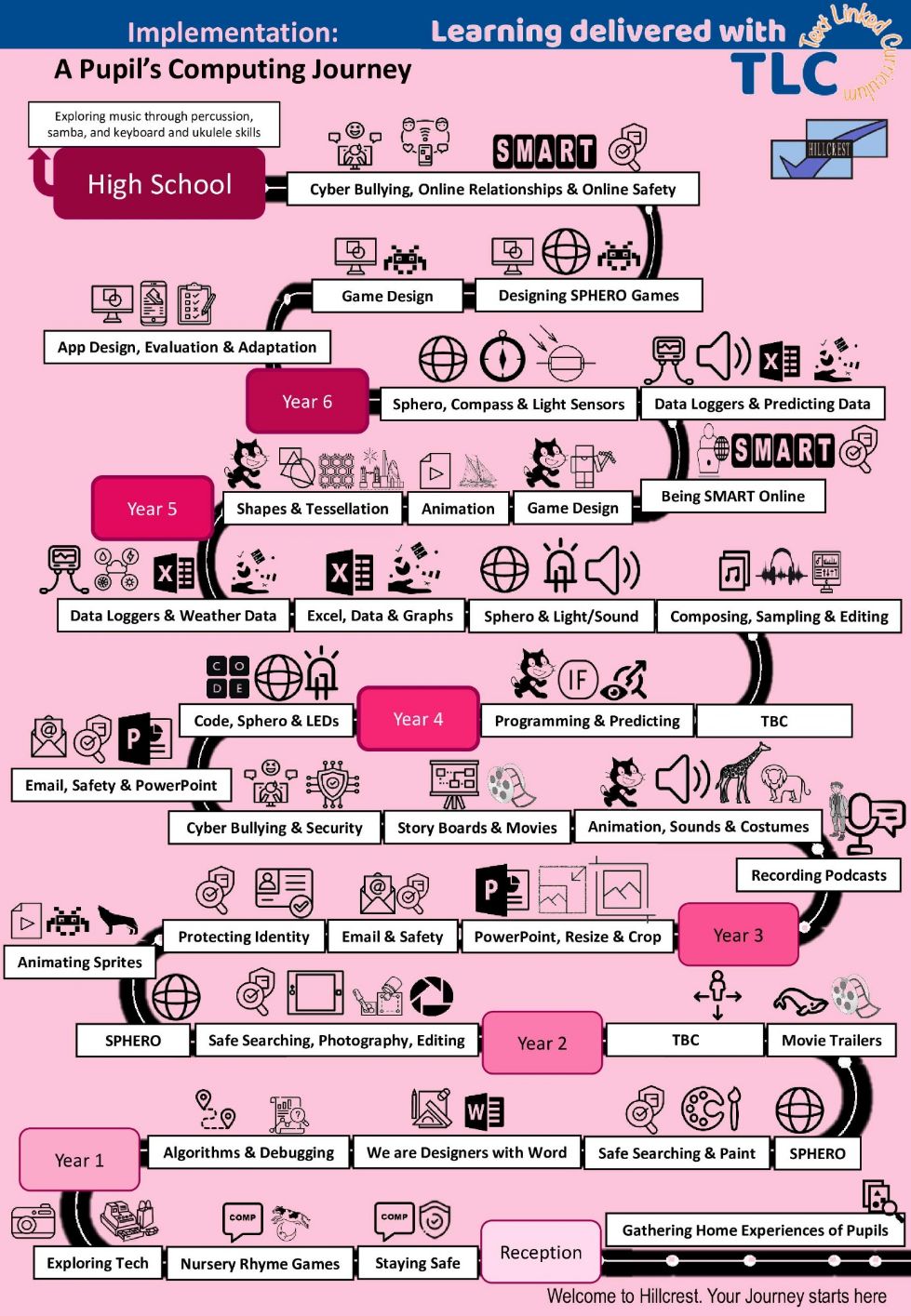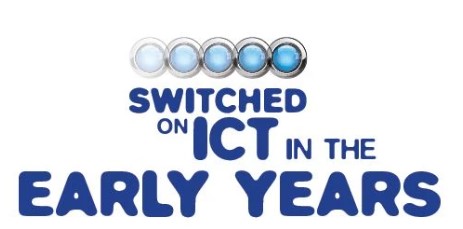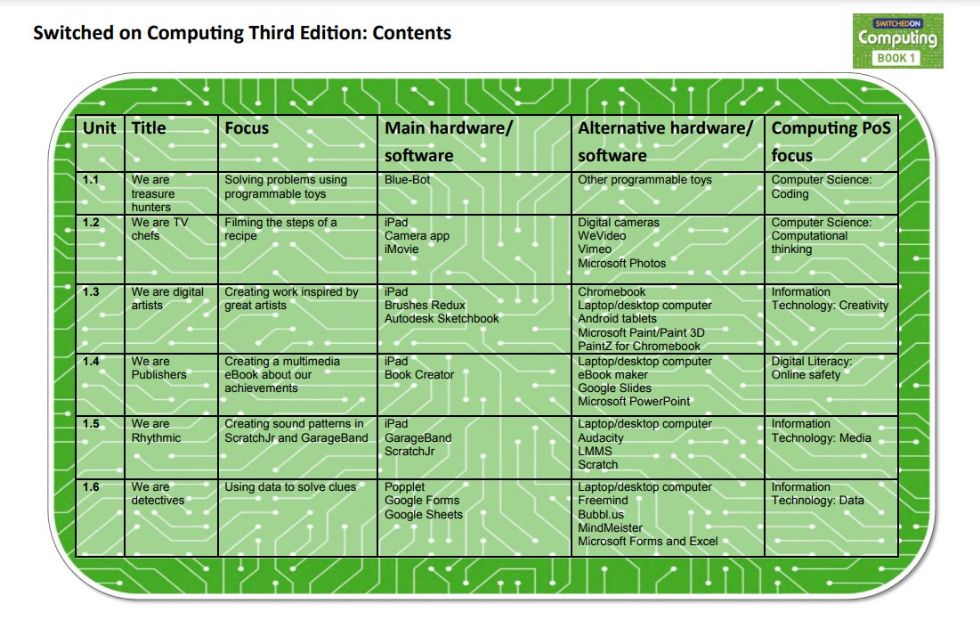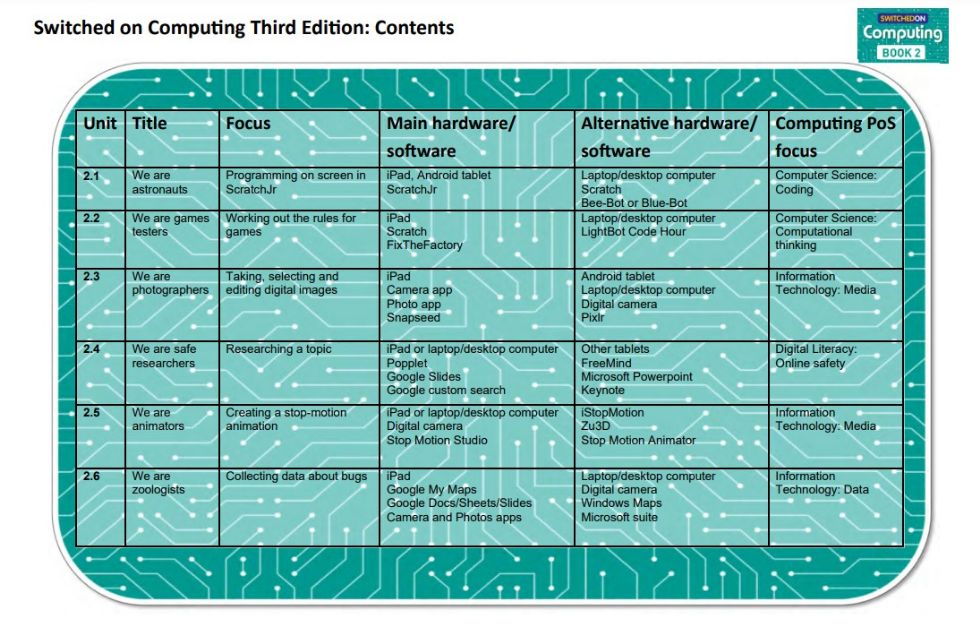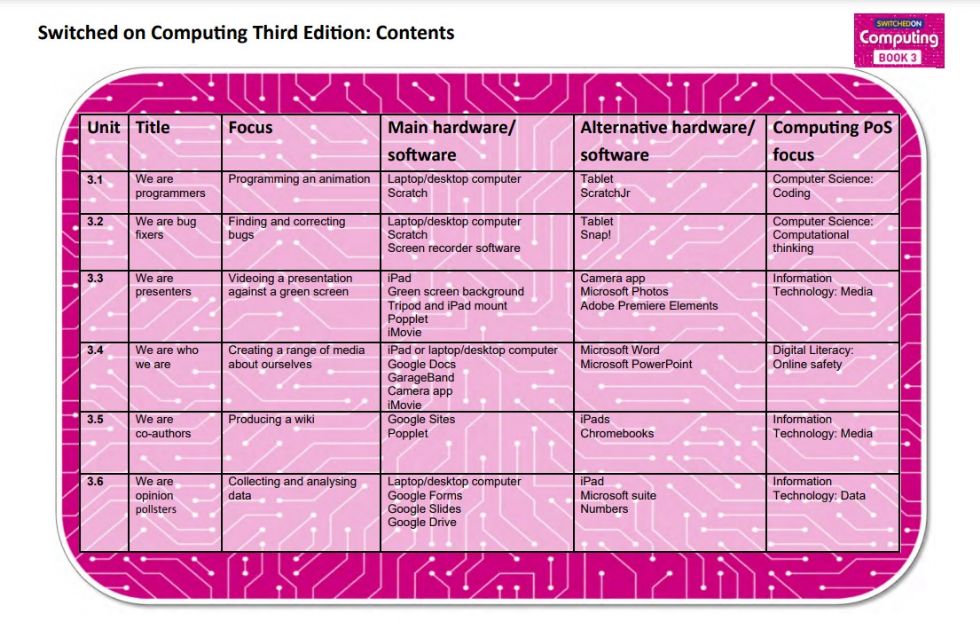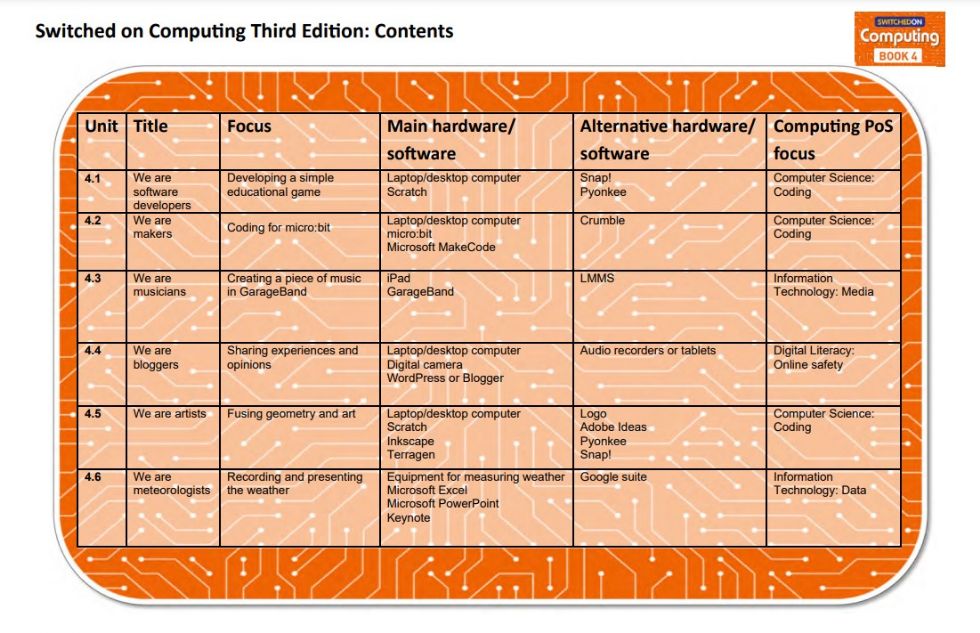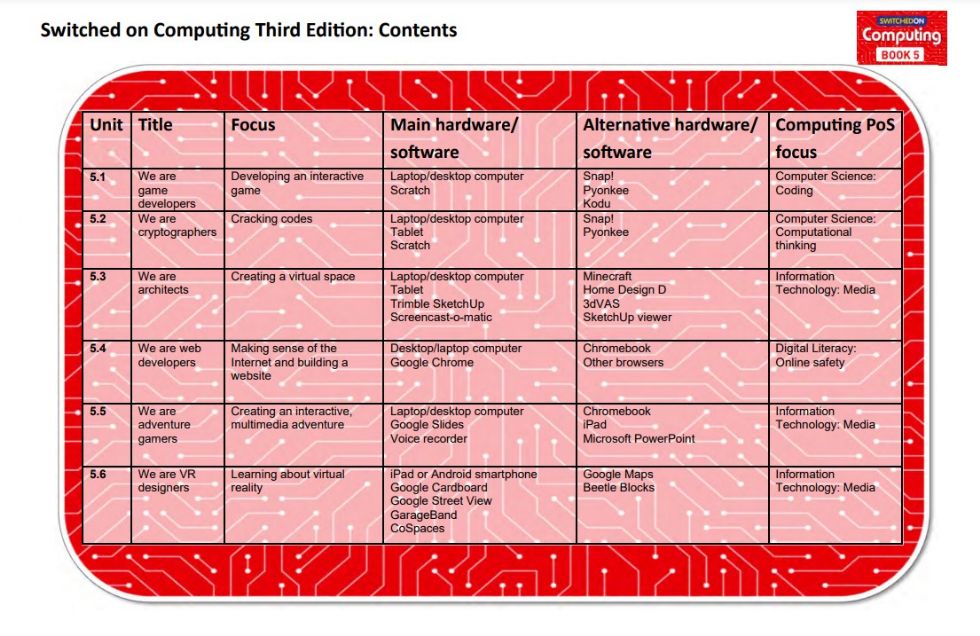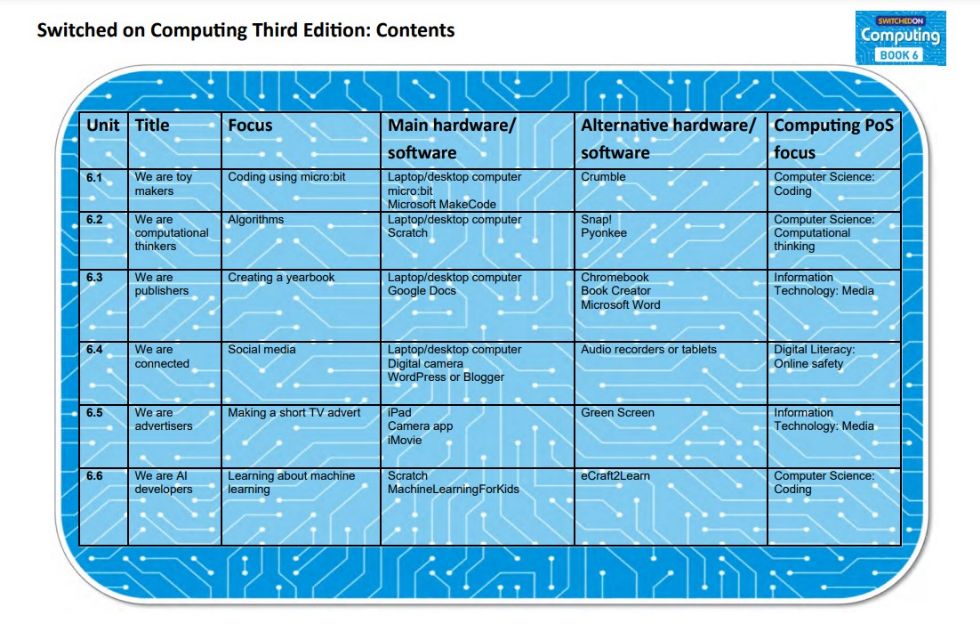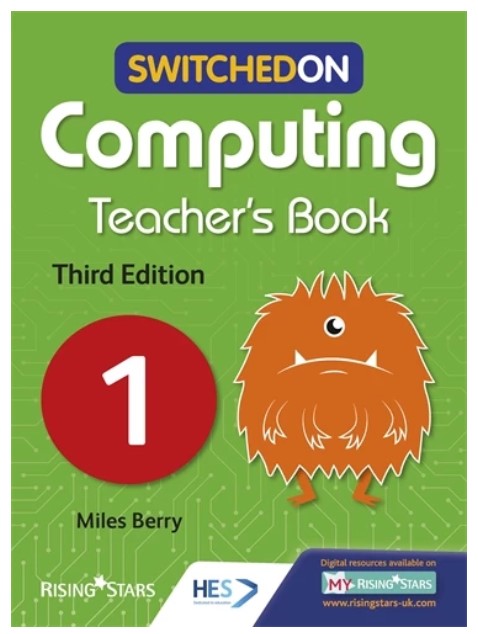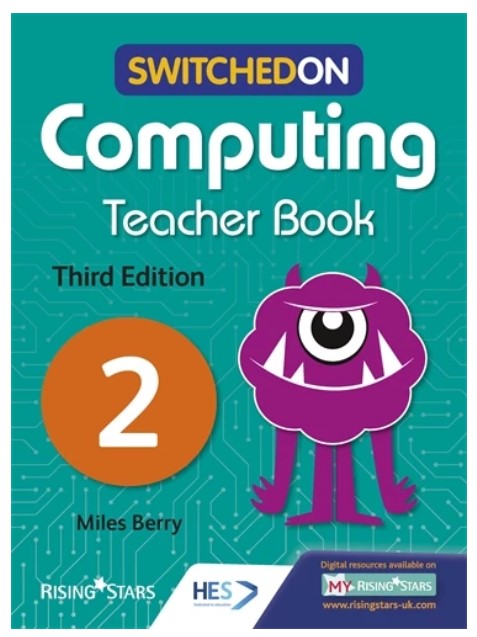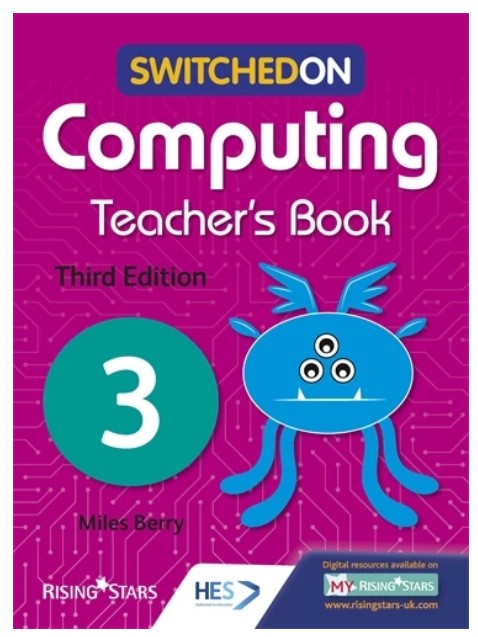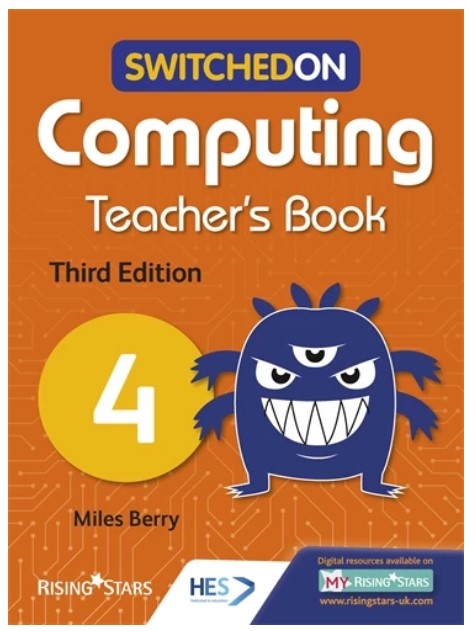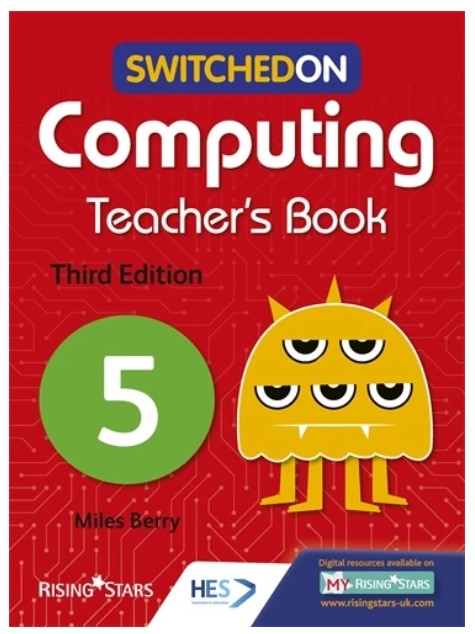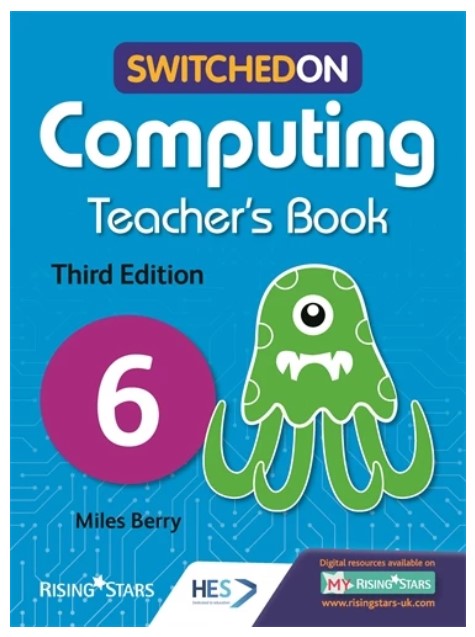Computing


A high-quality computing education equips pupils to use computational thinking and creativity to understand and change the world. Computing has deep links with mathematics, science, and design and technology, and provides insights into both natural and artificial systems.
Hillcrest's 5 Principles of Computing
At Hillcrest, each subject team has created 5 key principles, outlining what makes up quality teaching in each subject:
|
1. Children in Years 1 to 6 will be taught from the Rising Stars Computing Scheme. In EYFS, children will be taught specific units from Barefoot Computing. |
|
|
2.Children are enthusiastic and engaged in computing lessons. They are taught a variety of key skills, which underpin their knowledge and understanding of Computing. |
|
|
3.Lessons are adapted so that all children can access the curriculum content in different ways. |
|
|
4. Online Safety is taught at the start of each unit and referred to in each lesson. |
|
|
5. Children are taught the computing specific vocabulary in each unit. |
Click on the INTENT, IMPLEMENTATION and IMPACT bars below to discover why and how we teach Computing.
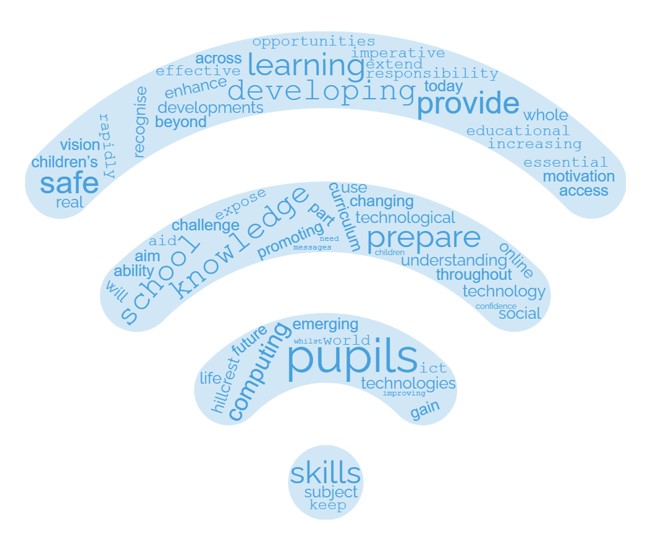
INTENT Statement for Computing
Our computing vision, at Hillcrest, is to keep all our pupils safe online. We provide them with the knowledge and skills to do so, promoting safe messages throughout the curriculum. We recognise that as a school we have a responsibility to prepare the pupils for their future by improving their knowledge of and understanding of how imperative technology is as an aid to learning and the real world beyond school. As computing is an increasing part of life today it is essential that all pupils gain the confidence and ability that they need in this subject, to prepare them for the challenge of a rapidly developing and changing technological world. The use of ICT will enhance and extend children’s learning across the whole curriculum whilst developing motivation and social skills. We aim to expose children to the educational developments in computing and provide them with the opportunities to access to the most effective and emerging technologies.
IMPLEMENTATION Statement for Computing
To ensure that pupils receive a high-quality Computing curriculum, we have recently purchased the update to our Rising Stars scheme, which will be rolled out in September 2022. The units reflect the aims and attainment in the National Curriculum, as well as reflect the Hillcrest progression map for Computing skills.
Over the past few years, we have invested in technology to ensure that Computing teaching can happen around the school and not just the ICT Suite. If any paper-based work is completed, this will be stored in Computing folders.
The Rising Stars Computing curriculum allows children to build upon the learning and skill development of the previous years. Our computing teaching will support the progression of skills as outlined on the progression map through a variety of units which enable recaps of key vocabulary and skills as well as having a clear flow of skill development as the children have more lessons on the topic.
We teach Online Safety at the beginning of each unit to help support the upcoming lessons. This way, teachers can refer back to the session and pupils can apply what they have learnt. At the start of every year, every class is asked to come up with their own Online Safety rules which are referred to throughout each unit and the rest of the year.
We encourage Computing to be taught throughout the curriculum, giving opportunities for children to present work in different ways, linking to our Hillcrest 5Cs of independent learning – being creative through digital skills.
IMPACT Statement for Computing
At Hillcrest Primary, we measure progress through the use of our assessment grids and end-of-unit quizzes. At the end of each unit, we use the assessment grids to inform us how each pupil is performing in that specific area e.g. digital literacy, coding etc. The use of key questions and opportunities to demonstrate key skills ensures that there are opportunities in lessons for ongoing assessment. Ensuring that computing is taught every week, Online Safety is consistently referred to and that pupils have opportunities to work with different technologies, the children of Hillcrest Primary will become confident, digitally-literate and safe users of technology, which will supply them with all the tools they need to enter an ever-growing digital world.
Explore the blue banners below to find out more about what specific themes we teach in Computing and how these themes are revisited, recalled and expanded upon as the children journey through the school.

Year Group Overviews for Computing
Progression for Computing
Learning in Computing is sequential, revisiting key concepts each year:
- Computer Science (Problem-Solving; Programming; Logical Thinking)
- Information Technology (Creating Content; Searching)
- Digital Literacy (Online Safety; Using IT Beyond School)
Click on the images below to access the Progression Frameworks for each year group. To view a spreadsheet illustrating how each key concept progresses through the years, click on the document at the bottom of this page
Learning Journey for Computing
Watch out for the following symbols in the Art & design Learning Journey:
